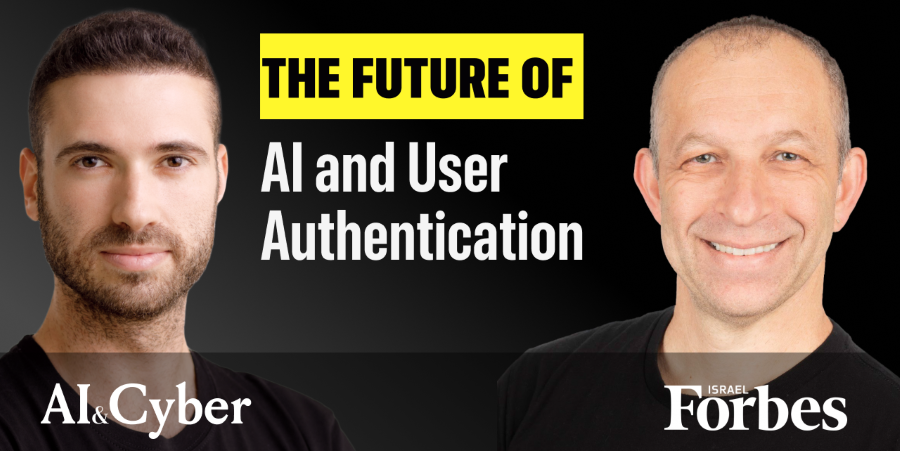Cybersecurity stands at yet another critical juncture, significantly reshaped by the explosive growth of AI technologies. During my recent visit to Descope’s Palo Alto office—a classic Silicon Valley garage-style workspace—I had a fascinating conversation with Slavik Markovich, the seasoned CEO of Descope and a veteran of the cybersecurity industry. Markovich, a serial entrepreneur known for his previous ventures Demisto (acquired by Palo Alto Networks) and Sentrigo (acquired by McAfee), offers unique insights into the evolving cybersecurity landscape, particularly how AI intersects with digital identity.
Markovich and his team, who have been working together for nearly three decades, began Descope with a clear yet challenging mission: to simplify authentication by eliminating passwords entirely. Slavik succinctly articulated why passwords, though commonplace, are fundamentally flawed: “Passwords are the worst of both worlds—hard for humans to remember and easy for computers to crack.”
As cybersecurity threats become more sophisticated, especially those driven by AI, traditional password-based methods become increasingly inadequate. Phishing attacks, amplified by generative AI, have drastically reduced the barrier to entry for attackers, enabling even relatively unsophisticated attackers to launch highly effective campaigns. According to Slavik, “Passkeys represent the future—fully cryptographic, phishing-resistant keys stored locally and authenticated through biometrics, without ever exposing the biometric data itself.”
Descope’s approach addresses the complexity of modern identity management. While traditional solutions were static and reactive, Markovich sees the emergence of agentic AI as a revolutionary development. These “agents,” digital entities that perform tasks on behalf of users, represent a completely new security category between machine-to-machine and human-to-machine authentication. Slavik highlighted how crucial this new reality is: “The industry is shifting toward agentic AI, dramatically expanding the potential scale and complexity of identity management.”
This new agentic interaction model creates unique challenges. “One of the funniest yet critical issues we face is the ‘confused agent problem,’ where agents inadvertently act with higher privileges than their human counterparts,” Slavik explained. Descope positions itself precisely here—as an intermediary, mediating between users, agents, and applications, managing progressive authorization, and ensuring secure and compliant interactions.
In my view, the necessity for businesses to adapt swiftly to this new reality cannot be overstated. Enterprises are already experiencing significant challenges as AI-generated tools permeate everyday business practices. CISOs, in particular, find themselves under pressure to rapidly adapt their security infrastructures to manage these new agent-driven interactions securely and effectively.
From my experience at Clarity, where we deal extensively with AI-driven threats such as deepfakes and sophisticated phishing attacks, the importance of robust yet frictionless identity management solutions has never been clearer. Organizations need proactive tools to manage identity securely—not merely as a peripheral measure, but as a core component of their overall cybersecurity strategy.
Reflecting further, Slavik highlighted a powerful lesson from his entrepreneurial journey: enjoying the process matters. “We prioritize having fun. We’ve built multiple companies together because we genuinely enjoy the journey,” he said. This perspective aligns perfectly with my own belief: successful cybersecurity solutions aren’t just technically sophisticated; they’re built by passionate teams driven by curiosity, resilience, and a genuine love for innovation.
The AI-driven identity revolution is unfolding rapidly. Companies that proactively adopt passwordless, agent-driven authentication will significantly enhance their security posture and user experience. Those clinging to traditional password-based systems risk increasing vulnerabilities and user dissatisfaction.
My conversation with Slavik reinforced a fundamental truth: the cybersecurity industry isn’t just evolving—it’s transforming. Embracing agentic interactions, passwordless systems, and proactive, AI-enabled defenses is no longer optional; it’s imperative.
Organizations that adapt swiftly will secure their digital futures. Those that hesitate risk being left dangerously behind in a cybersecurity landscape increasingly shaped by the relentless pace of AI-driven innovation.
Michael Matias is the CEO and Co-Founder of Clarity, an AI-powered cybersecurity startup backed by venture capital firms including Bessemer Venture Partners and Walden Catalyst. Clarity develops advanced AI technologies protecting organizations from sophisticated phishing attacks and AI-generated social engineering threats, including deepfakes. Before founding Clarity, Matias studied Computer Science with a specialization in AI at Stanford University and led cybersecurity teams in Unit 8200 of the Israel Defense Forces. Forbes Israel recognized him early on, naming him to the exclusive 18Under18 list in 2013 and the Forbes 30Under30 list thereafter. Matias authored the book Age is Only an Int and hosts the podcast 20MinuteLe





